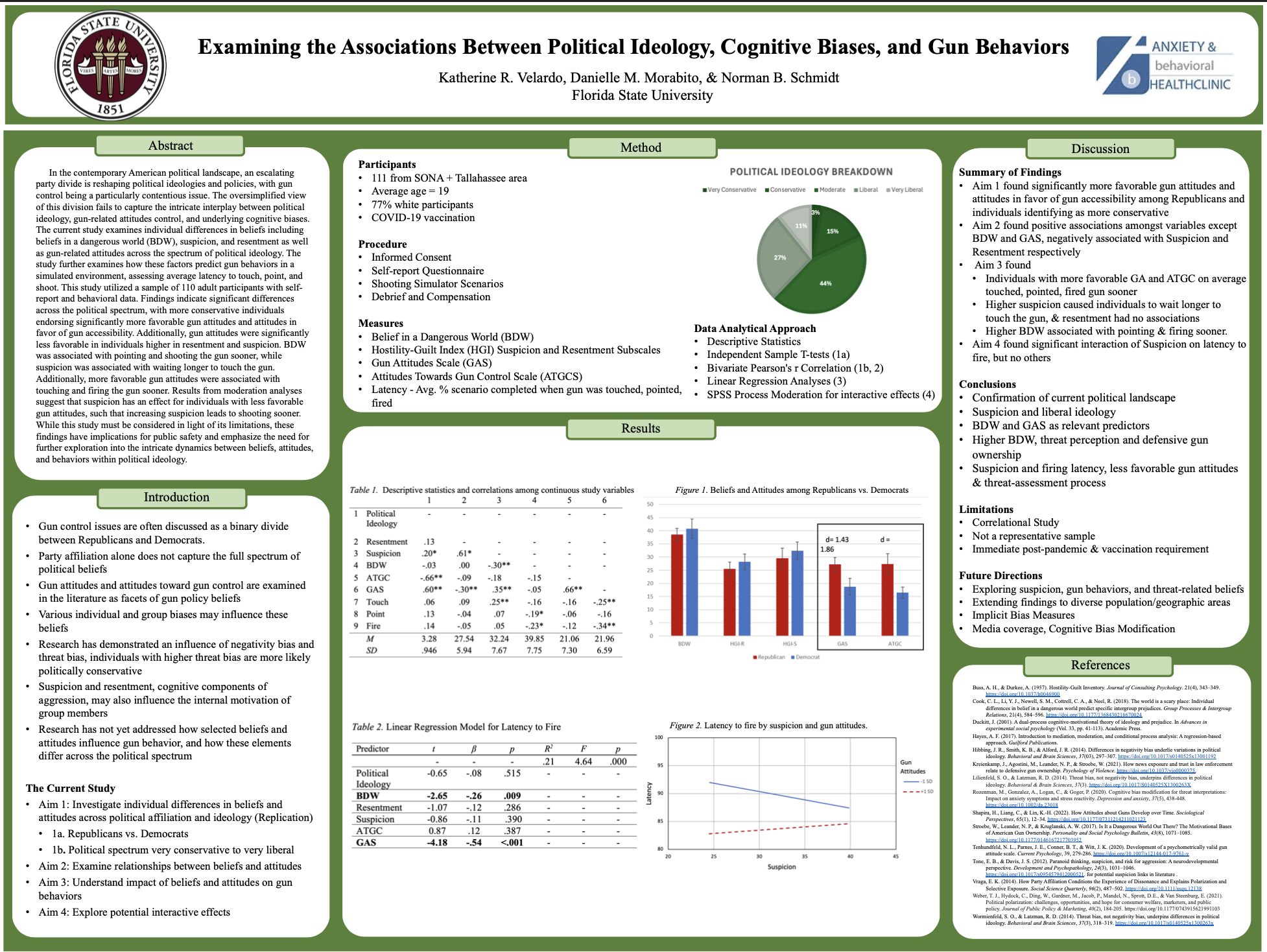Research Symposium
24th annual Undergraduate Research Symposium, April 3, 2024
Katherine Velardo Poster Session 1: 9:30 am - 10:30 am /85

BIO
Katherine is a senior Psychology major who is interested in the impacts of current socio-cultural conditions on mental health and psychology. Her other research interests include the understanding and reproduction of cultural knowledge and social scripts, multidisciplinary therapeutic approaches, and trauma's physical and mental manifestations. She is originally from Somers, New York, and plans on attending North Carolina State University for her Master's in Clinical Mental Health Counseling. Katherine aims to become a licensed mental health counselor, with a focus on LGTBQIA+ advocacy and intersectional frameworks. Eventually, she would like to work in mental health policy and advocacy for a non-profit or other local organization.
Examining the Associations Between Political Ideology, Cognitive Biases, and Gun Behaviors
Authors: Katherine Velardo, Danielle MorabitoStudent Major: Psychology
Mentor: Danielle Morabito
Mentor's Department: Psychology Mentor's College: College of Arts and Sciences Co-Presenters:
Abstract
In the contemporary American political landscape, an escalating party divide is reshaping political ideologies and policies, with gun control being a particularly contentious issue. The oversimplified view of this division fails to capture the intricate interplay between political ideology, gun-related attitudes control, and underlying cognitive biases. The current study examines individual differences in beliefs including beliefs in a dangerous world (BDW), suspicion, and resentment as well as gun-related attitudes across the spectrum of political ideology. The study further examines how these factors predict gun behaviors in a simulated environment, assessing average latency to touch, point, and shoot. This study utilized a sample of 110 adult participants with self-report and behavioral data. Findings indicate significant differences across the political spectrum, with more conservative individuals endorsing significantly more favorable gun attitudes and attitudes in favor of gun accessibility. Additionally, gun attitudes were significantly less favorable in individuals higher in resentment and suspicion. BDW was associated with pointing and shooting the gun sooner, while suspicion was associated with waiting longer to touch the gun. Additionally, more favorable gun attitudes were associated with touching and firing the gun sooner. Results from moderation analyses suggest that suspicion has an effect on individuals with less favorable gun attitudes, such that increasing suspicion leads to shooting sooner. While this study must be considered in light of its limitations, these findings have implications for public safety and emphasize the need for further exploration into the intricate dynamics between beliefs, attitudes, and behaviors within political ideology.
Keywords: Political Ideology, Threat Perception, Belief in a Dangerous World, Gun Behaviors


